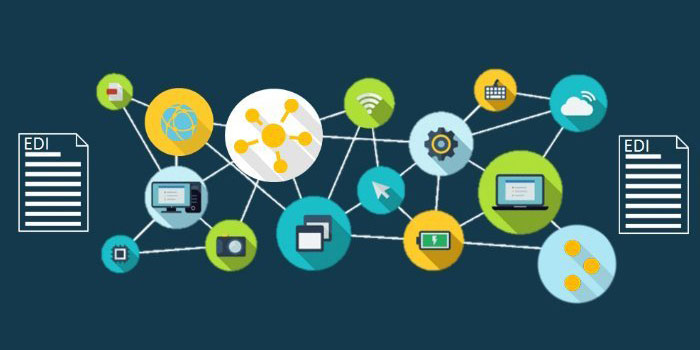Non-cash charges refer to any write-down or financial charge that requires no actual cash outlay. These shifts can materialize an organization's bottom line while not affecting its available working capital. Non-costs are more widely used than lower revenues, but not-free cash flow includes amortization, depreciation, loss, securities remuneration, and impairment charges.
Recognizing a Payment Non-Cash Charge
The financial statements of a corporation will often include information regarding non-cash expenses. Fees not preceded by financing activities must be documented and are obligated for businesses that use accrual-based accounting. Accrual-based accounting is a technique that any manufacturers apply to document their monetary operations even though a recurring deposit has been produced.
Accrual Accounting

It is common practice to charge expenses for amortization, deterioration, and loss throughout an asset's estimated lifetime, provided that the equipment was purchased with revenue at an earlier point in time. If the financial expenditure for the resource was not represented in the company's revenue at the moment of purchase, it must be amortized over a specific number of accounting periods. These costs are deducted from the financial statement, decreasing the total worth of the balance sheet's assets and liabilities.
Types of Non-Cash Charges
The following are the types of Non-Cash charges:
Depreciation
This phenomenon is known as depreciation when a resource's valuation declines due to causes such as deterioration or expiration. In order to properly manage accounts of depreciation, the annual decline in value must be reflected on the financial statements as a charge that is not cash-based. Depreciation is a non-cash charge that is recorded annually until the asset's value falls to the point where it may be sold for scrap.
Amortization
Amortization is quite comparable to depreciation. However, it refers to the accounting process for intangible assets like copyrights, brand names, and royalties as opposed to real estate and tangible machinery and tools. If a firm invests $1 million on a patent and it remains in effect for the next ten years, the company will have an annual amortization charge of $1 million.
Depletion
The term "depletion" refers to a method for dividing up the monetary price tag associated with mining the earth for precious metals, fossil fuels, and other natural commodities. Depletion refers to the physical consumption of natural resources by businesses, as opposed to amortization and depreciation, which largely explain the elimination of expenditures owing to the maturing of any machinery and property.
Maintaining Records of Non-Cash Charges

The significance of non-cash charges lies in the fact that they have the effect of lowering a company's total profitability. Because non-cash costs are still considered, they will be shown as a reduction in the company's net earnings. However, this will not impact the industry's overall working capital.
When it comes to non-cash expenditures such as depreciation or obsolescence, it may be challenging to anticipate how assets would decline or vary with time; hence, these costs are typically reported as predictions. Non-cash fees are a means to incorporate the expenditure directly into the financial statements, even if the expense itself does not entail any cash because it does not contain any cash.
Non-Recurring Expenses
A non-cash charge or penalty is an item deducted from profits that do not need the actual withdrawal of cash. Non-monetary fees are charged toward non-cash assets on a company's balance sheet.
In order to compile the cash flow report/ financial statement, the financial statements are first analyzed after the deduction of non-cash. For instance, a company's deferred revenue is the sum of money it is obligated to pay but has not yet received. However, it has value, which is reflected in the financial statements. However, the item will not be included in the final cash flow statement that will be created.
Although businesses need to keep track of their non-cash expenditures, it is necessary to remember that most of these operations need the use of assumptions.
For instance, one example is products that must be repaired under warranty. The corporation uses a non-cash component called an accommodation to arrive at this number. While underestimating the limit might cause issues in the long run, overestimating it can reduce your revenue and make you less desirable to investors. Consequently, caution must be exercised whenever a company attempts to account for assets that cannot be readily converted to cash.
There is also the possibility that non-cash expenses will represent one-time bookkeeping losses brought about by shifting financial statements. These expenditures are typically the outcome of revisions to an organization's accounting policies, business restructures, a shift in the asset's current market value, or revised expectations regarding the number of achievable future cash flows.
Example of Non-Cash Charge
In October 2018, GE Electrics took a goodwill valuation allowance of $22 billion due to the decline in the valuation of its electric networks. If the purchase price of a company is higher than its actual market worth, goodwill will be recorded in the accounting records. But if the value of the financial assets drops below projections, goodwill must be written down. GE's $10.6 billion accounting cost after purchasing the French company Alstom aroused concerns for obvious reasons.
What Are the Non-Cash Transactions?
Several examples of Non-Cash Transactions are as follows:
- Depreciation
- Amortization
- Opportunity cost
- Lost opportunity
- Maintenance costs
- Stock-based pay
- Accounting for Discount Costs
- Paying Income Taxes Later
- Reduced value of assets
- Reserves against potential losses
Conclusion
Companies frequently try to reduce the importance of non-cash expenses, especially one-time charges, by altering their revenues to omit the influence that these charges have on their financial statements.
Shareholders are charged with the responsibility of deciding whether or not non-cash charges warrant concern. In most cases, non-cash costs are already recognized and are entirely safe. On the other hand, some may arise out of nowhere and act as possible warning signs of bad accounting, incompetence, and a massive change in circumstances.



